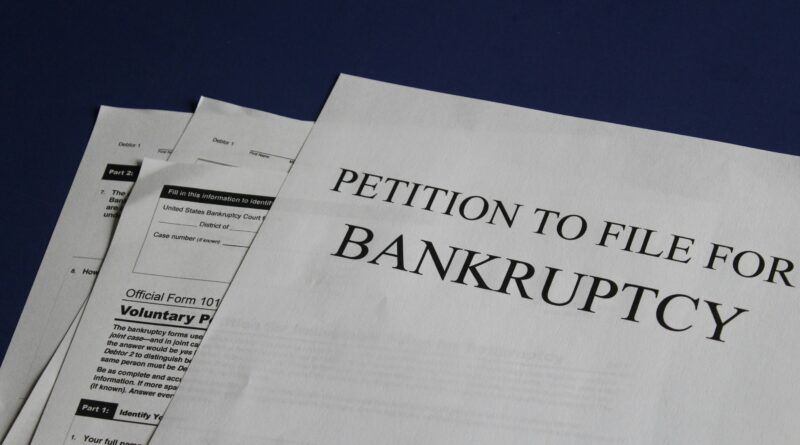6 Common Myths About Filing for Bankruptcy
While bankruptcy can be a stressful situation, it doesn’t have to be the curse it’s often made out to be. There is life after bankruptcy — especially if you hire a good bankruptcy lawyer.
Too many individuals across Baltimore side-step bankruptcy due to common misconceptions — even if a filing is probably the best option on the proverbial table. Misinformation can cloud the mind and lead to wrong decisions, unfortunately.
Keep reading to see six popular myths about bankruptcy filings that you might actually believe.
Myth #1: Bankruptcy Is an Admission of Failure
This is perhaps one of the most debilitating myths. Bankruptcy, in reality, is a statutory device that can help people struggling financially to get a fresh financial start. Many filers have been struck by circumstances that were beyond their control—loss of employment, health emergencies, divorce, or economic downturns.
In Baltimore, and in many cities, higher costs of living and healthcare can stretch the financial flexibility of even the most conservative individuals to the limit. So, filing is not necessarily an admission of failure. It can put people back into the driver’s seat of their own lives and help them navigate toward a prosperous future.
Myth #2: You’ll Lose Everything You Own
Perhaps the most common fear people have about filing for bankruptcy is losing their homes, automobiles, or personal belongings. But Maryland bankruptcy law offers a wide range of exemptions so people can keep most essentials.
In most Chapter 7 bankruptcy cases, applicants are allowed to keep their home—as long as they’re up to date on the mortgage—a vehicle up to a certain value, clothing, furnishings, and even retirement accounts. In Chapter 13 cases, people work out a payment plan that allows them to keep their properties and repay debts over time.
Myth #3: Your Credit Will Be Ruined Forever
Yes, bankruptcy will impact credit scores. But it is not forever. Most people see their credit scores begin to recover within a year of bankruptcy. In Baltimore, some filers qualify for new credit cards, auto loans, or even residential mortgages within a couple of years. Bankruptcy gives people a second chance to build better financial habits.
Myth #4: You Cannot Discharge Tax Debts or Student Loans
Though getting rid of tax debt and student loans is harder through a bankruptcy filing, it is not impossible. In some situations, very old tax debt is dischargeable, such as income taxes that were filed on time. Though most student loans are not dischargeable, extreme hardship situations in Baltimore and other jurisdictions have led judges to cancel them. It depends. Consulting with a good bankruptcy attorney can help.
Myth #5: You Can File Bankruptcy Only Once
People can file for bankruptcy more than once, but there are waiting periods between filings. For example, people who have filed under Chapter 7 must wait eight years before filing again under Chapter 7, or four years before filing under Chapter 13.
These limits are meant to prevent abuse of the system, but do not eliminate bankruptcy as a future possibility. Things can turn around, and the law recognizes this by allowing repeat filings under specified conditions.
Myth #6: Bankruptcy Erases All Debts
Not all debts are erased by bankruptcy. Alimony payments, child support payments, court-ordered fines, and some student loans usually survive the process. But most debts, such as credit cards, doctor bills, and personal loans, are usually wiped out in Chapter 7. With Chapter 13, filers can repay some of these debts over three to five years, and any remaining balance may be dischargeable.
Know the Truth Before You Decide
Sometimes bankruptcy is the best option. For many Baltimore residents overwhelmed by crippling debt, bankruptcy is a reasonable, orderly method of financial rehabilitation. By dispelling some of the myths and knowing what filing really means, people can make more informed decisions.
For those who don’t have any idea whether bankruptcy is in their own best interest, it’s best to meet with veteran bankruptcy lawyers to discuss their options.
I’m a single mother of 2 living in Utah writing about startups, business, marketing, entrepreneurship, and health. I also write for Inc, Score, Manta, and Newsblaze

